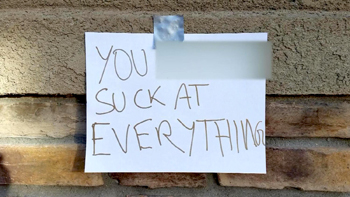Sydney, Jan 6: Reserve troops fanned out across fire-ravaged regions in three Australian states on Monday after a horror weekend, as the government pledged $1.4 billion over two years to help recover from the devastating months-long crisis.
Catastrophic bushfires have turned swathes of land into smouldering, blackened hellscapes and destroyed an area about the size of the island of Ireland, according to official figures, with authorities warning the disaster still has weeks or months to run.
Prime Minister Scott Morrison, whose government has been criticised for its slow response to the emergency, pledged Australian $2 billion ($1.4 billion) of taxpayer money for a national recovery fund.
"It's a long road ahead and we will be with these communities every step of the way as they rebuild," Morrison said.
Firefighters joined by fresh teams from the US and Canada were taking advantage of rainy and cooler conditions to tackle out-of-control blazes ahead of rising temperatures forecast later this week.
In the biggest-ever call up of reserves, military teams were deployed across eastern Australia to help emergency services assess the damage, restore power and deliver supplies of food, water and fuel to cut-off communities.
For the first time in Australian history the government also deployed its medical assistance team, normally sent to other nations to lend support in the aftermath of their disasters to help evacuees.
"There is no room for complacency, especially as we have over 130 fires burning across (New South Wales) state still," Premier of New South Wales state Gladys Berejiklian said on Monday.
New normal
Almost five million hectares (50,000 square kilometres) have been razed across New South Wales and more than 1.2 million hectares in Victoria since late September, officials said.
That took the total amount of land burnt close to eight million hectares, around the size of the island of Ireland or South Carolina.
Twenty-four people have lost their lives so far, with over 1,800 homes damaged.
Two people are missing in New South Wales, the nation's most populous state.
In Victoria, Premier Daniel Andrews established a bushfire recovery agency to help devastated towns. It will be a permanent body, he said, as intense fires will become commonplace.
"We should just be honest about the fact that we're going to see more and more fires, more and more damage as each fire season comes... this is the new normal," Andrews told reporters.
The chair of the newly established Victoria state's bushfire appeal fund, Pat McNamara, added that this year's summer bushfire season was a "creeping disaster".
"We're still not even into what we would regard as the peak of the fire season," McNamara told national broadcaster ABC.
In the usually picturesque southeastern town of Eden, Holly Spence said she spent more than 12 hours defending her family's farm on Saturday, less than a week after saving it on New Year's Eve.
"We don't want to go through this for a third time," the 28-year-old told AFP.
Fiona Kennelly, 50, who evacuated with 24 members of her extended family to a motel outside Eden, said she was relieved the easing conditions allowed them to get some respite from the crisis.
"It's good to see daylight at the right time again," she told AFP, adding that the skies had been turning pitch-black in the afternoons.
Public anger
The impact of the bushfires has spread beyond affected communities, with heavy smoke engulfing the country's second-largest city Melbourne and the national capital Canberra.
Some government departments were shut in Canberra as the city's air quality was once-again ranked the world's poorest, according to independent online air-quality index monitor Air Visual.
The disaster has sparked growing public anger with Morrison. Rallies are planned on Friday to call on his government to step up efforts to tackle climate change, which experts say have helped fuel the fires.
In Los Angeles, Hollywood superstar Russell Crowe said he was back home fighting the fires and that the disaster was "climate change-based".
"We need to act on science, move our global workforce to renewable energy and respect our planet for the unique and amazing place it is. That way, we all have a future," he said in a message read out by Jennifer Aniston.
Australian actress Cate Blanchett praised the volunteer firefighters battling the blazes, adding: "When one country faces a climate disaster, we all face a climate disaster. We're in it together."
 The Federal Bureau of Investigation (FBI) is probing into the case which came to light on February 6.
The Federal Bureau of Investigation (FBI) is probing into the case which came to light on February 6.




Comments
To those who tell Indians or any \brown\" complexioned people to give up their dreams of settling in the US, I say we have every right to be here and are not going to run away because to do so will mean these domestic terrorists will win. There is a phrase you can die a thousand deaths every day by living in fear, or you can walk with your heads held up high. The choice is yours.
Enough is enough."
Indians should give up idea of settling in US....they can utilize their ability to develop India....
All these are because of most wanted hate monger Trump. He is a mess in US. No peace will regturn to US unless this hate monger is kicked out of US. He is not worth to be called as a human being. Indians are staying in US, working for the development of US economy and being respected till date. However, this hate issue is started ever since Trump jumped n politics. Many Indians had supported Trump and now they are feeling sorry for it.
Add new comment